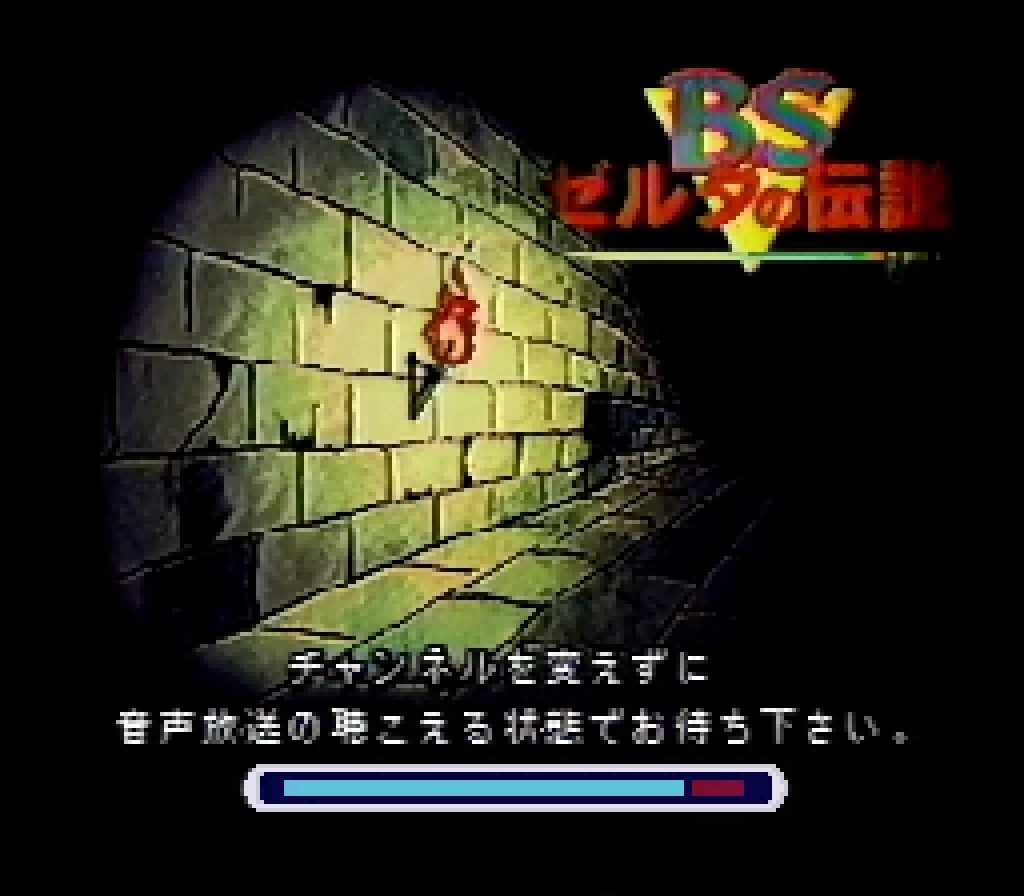BS The Legend of Zelda
| This article is a stub. You can help the Zelda Dungeon Wiki by expanding it. |
| Release | ||
|---|---|---|
Platform | Date | |
| Credits | ||
Developer | ||
Publisher | ||
Translated from BS Zelda no Densetsu, BS The Legend of Zelda was released only in Japan on the Satellaview attachment (BS-X Broadcasting System) for the Super Famicom being the first out of three Zelda games released for the BS-X Broadcasting System. BS The Legend of Zelda is the fifth Zelda game developed by Nintendo and the first Zelda game developed as a remake. While being a remake of The Legend of Zelda, there are major changes/differences between the two games. After approximately two years after Link's Awakening was released, the game was first broadcasted on August 6, 1995 being transmitted by St.GIGA, a satellite radio company. Being the first SoundLink Game released via Satellaview, BS The Legend of Zelda was the world's first integrated radio-game, identified by Nintendo. Similar to the Second Quest from The Legend of Zelda, Nintendo developed BS The Legend of Zelda: MAP 2 due to the popularity of the game. This quest was a remixed version of MAP 1 from BS The Legend of Zelda, being broadcasted in December 30, 1995. The Zelda title had three reruns in its entire liftspan with a fourth rerun due to the Player's Choice Classic SoundLink game. However, BS The Legend of Zelda: MAP 2 only had one rerun. On March 27, 1996, BS The Legend of Zelda: MAP 2 stopped being broadcasted in Japan, and on January 4, 1997, St. GIGA stopped broadcasting BS The Legend of Zelda.
Unlike most of the Zelda titles in the series, BS The Legend of Zelda's protagonists are actually the avatars of the BS-X Broadcasting System and not Link. The protagonist's name and gender is based off of the broadcasting ID. The game also marks the first time that a Zelda title developed by Nintendo utilized spoken dialogue. Using the 16-bit graphical capabilities of the Super Famicom and the overhead perspective of The Legend of Zelda, BS The Legend of Zelda has a roughly similar plot and controls to its predecessor, although timed events were added, such as the ability to shoot sword beams regardless of the amount of health one has. The music was also given an upgrade to bring it into line with the rest of the changes made.



